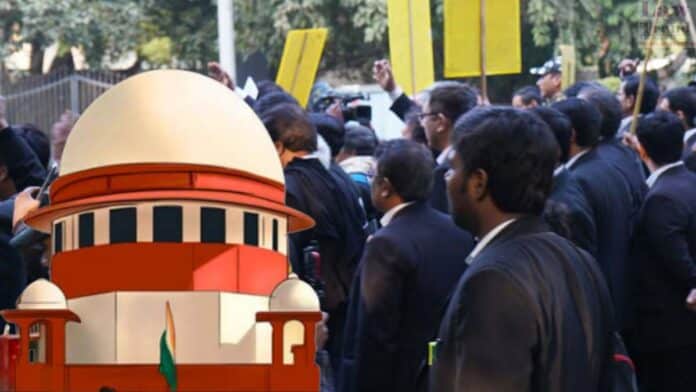The Supreme Court on Tuesday said it will hear the Attorney General for India and Solicitor General of India on August 12 regarding the possible formulation of guidelines to protect lawyers from intrusive summons issued by investigating agencies in relation to matters concerning their clients.
A Bench comprising Chief Justice of India BR Gavai and Justice K Vinod Chandran made the announcement while hearing a suo motu case initiated following the Enforcement Directorate’s (ED) controversial issuance of summons to Senior Advocates Arvind Datar and Pratap Venugopal. The two were summoned in connection with the grant of over 22.7 million ESOPs, worth over ₹250 crore, by Care Health Insurance to former Religare Enterprises Chairperson Rashmi Saluja. Datar had rendered a legal opinion supporting the issuance, while Venugopal was the Advocate-on-Record.
The ED eventually withdrew the summons after sharp criticism from bar associations across the country. In response to the outrage, the agency also issued a circular advising its officers not to summon advocates except under the statutory exceptions specified in Section 132 of the Bharatiya Nyaya Sanhita (BNS), and even then only with prior approval of the ED Director.
Despite the ED’s withdrawal of the summons, the Supreme Court decided to examine the issue on the basis of a representation made by the Supreme Court Advocates-on-Record Association (SCAORA).
Court Invites Suggestions from Bar Associations
The Bench asked stakeholders including the Supreme Court Bar Association (SCBA) and SCAORA to submit their suggestions to the AG and SG before the next hearing. “We will hear the SG and AG on August 12. List high on board,” the CJI said.
SCBA President Vikas Singh supported the ED circular and urged that its principles be extended to the police and CBI. Emphasizing the need to safeguard privileged communication between advocates and clients, Singh said:
“We are not defending anyone who falls under the exception or the proviso [to Section 132]. But if the lawyer feels he can be called in routine fashion, it will have a chilling effect on the administration of justice.”
He proposed that summons by police and the CBI should require clearance from a Superintendent of Police (SP), and further suggested that judicial scrutiny be introduced, with magistrates approving summons before issuance. “If magistrate feels that it is admissible evidence, then summons can be issued,” Singh said.
SG Opposes Judicial Layer, But Endorses SP-Level Clearance
Solicitor General Tushar Mehta opposed the idea of requiring magistrate approval, calling it potentially violative of Article 14 of the Constitution by creating a judicial layer not envisioned by law.
“SP level permission for CBI and police is welcome. But magistrate permission would be creating a statutory barrier that could be challenged.”
While noting that no lawyer should be summoned merely for giving legal advice, Mehta cautioned against overreacting to isolated incidents: “One incident should not lead to unmanageable guidelines.”
Senior Advocates Call for Broader Protection
Several senior advocates, including Mukul Rohatgi, Shoeb Alam, Amit Desai, Atmaram Nadkarni, Ranjit Kumar, and Siddharth Luthra, made submissions urging the court to extend safeguards.
Rohatgi requested that protections be extended to in-house counsels and legal advisors. Alam cited the freezing of bank accounts of law firm Cyril Amarchand Mangaldas, which were later unfrozen only after intervention by a magistrate.
“They should see if there is a prima facie case for summoning or freezing accounts for legal opinion,” Alam said.
Desai referred to search warrants being issued to law firms, arguing that agencies must distinguish between privileged and non-privileged documents. “There are guidelines in the UK, US, and Singapore on this issue,” he said.
Nadkarni, appearing for SCAORA, opposed the examination of lawyers’ electronic devices by agencies.
SG Mehta responded that while the government would consider the suggestions, stray incidents should not lead to statutory changes. “The firm involved is the most honest one. The firm should not have been named,” he said.
Background: Court’s July 21 Observations
Earlier, on July 21, the Court had expressed shock over the ED’s summons to the senior advocates and had observed that it was contemplating the issuance of guidelines to prevent such instances in the future.
The matter will be taken up for detailed hearing on August 12.




